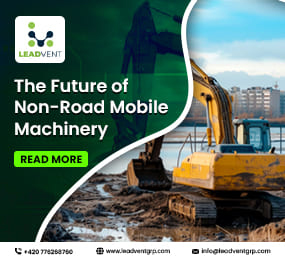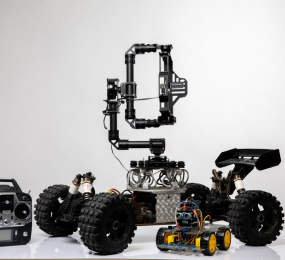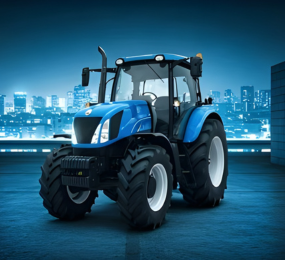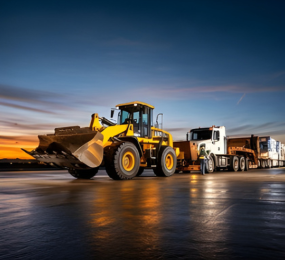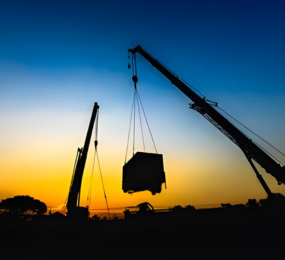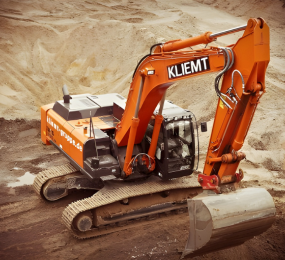Non-Road Mobile Machinery Electrification and Decarbonization: Driving the Future of Sustainable Industry
Non-road mobile machinery (NRMM), including construction equipment, agricultural machines, and industrial vehicles, plays a critical role in our economy yet has long been overlooked in the race to decarbonize. These machines, typically powered by diesel engines, contribute significantly to local air pollution and greenhouse gas emissions. With increasing environmental regulations and market demand for cleaner technology, electrification and decarbonization of NRMM are emerging as essential strategies for a sustainable future.
The Challenge and Opportunity of Electrifying NRMM
While electrification has advanced rapidly within the automotive sector, translating this success to NRMM is complex. These machines operate in diverse settings—from urban construction zones to remote agricultural fields—often requiring prolonged heavy-duty use and high power outputs. Unlike passenger vehicles, the energy demands and rugged operating conditions pose unique engineering and infrastructure challenges. Battery weight, energy density, charging infrastructure, and cost are key hurdles to widespread adoption.
Nonetheless, electrification promises numerous benefits. Electric NRMM reduces fuel costs and maintenance needs while improving worker safety by lowering noise and emissions exposure. Moreover, urban low-emission zones increasingly restrict diesel-powered equipment, incentivizing cleaner alternatives. Hybrid powertrains and hydrogen fuel cells offer transitional solutions where full electrification remains impractical.
Technological advances play a pivotal role in overcoming barriers. Increasing battery energy density, enhanced thermal management systems, and rapid charging solutions are making electric machinery more viable. Furthermore, hybrid systems combining internal combustion engines with electric motors deliver operational flexibility and improved fuel efficiency. Industry forums and collaborations are driving innovation, knowledge sharing, and regulatory alignment to accelerate market readiness.
Policy and Collaboration Are Key Drivers
Government policies and incentives, along with industry partnerships, are critical to creating an ecosystem that supports NRMM electrification and decarbonization. Examples such as municipal construction projects using electric machinery demonstrate feasibility and set practical
precedents. Public-private partnerships can help expand charging infrastructure and provide training for technical maintenance, alleviating operational challenges.
Stricter emissions regulations are pushing manufacturers to elevate standards, while subsidies and pilot programs reduce financial hurdles. These efforts support a gradual replacement of fossil-fueled equipment with cleaner alternatives and foster the development of sustainable business models for electrification.
The Road Ahead
Transitioning NRMM to electric and low-carbon powertrains is no small feat, but it is vital for meeting global climate commitments and improving air quality. As innovations continue and the cost gap narrows, we expect to see accelerated adoption in the coming decade. Electrification will not only reduce greenhouse gases but also enhance frontline workers’ health and create quieter, more efficient industrial environments.
The future of industry depends on recognizing and transforming this backbone of economic activity. Decarbonizing non-road mobile machinery aligns environmental responsibility with operational efficiency, setting the stage for a cleaner, smarter world.
Takeaway Points
Non-road mobile machinery significantly contributes to greenhouse gas emissions and local air pollution.
Electrification and hybridization provide promising pathways to reduce emissions and operational costs.
Key challenges include battery technology, infrastructure, and high upfront costs.
Policy support, industry collaboration, and technological innovation are essential to accelerate the transition.
Successful electrification improves environmental outcomes, workplace safety, and aligns with evolving regulations.
Learn more on our website: https://www.leadventgrp.com/events/2nd-annual-non-road-mobile-machinery-electrification-and-decarbonization-forum/details
For more information and group participation, contact us: [email protected]
Leadvent Group - Industry Leading Events for Business Leaders!
www.leadventgrp.com | [email protected]



